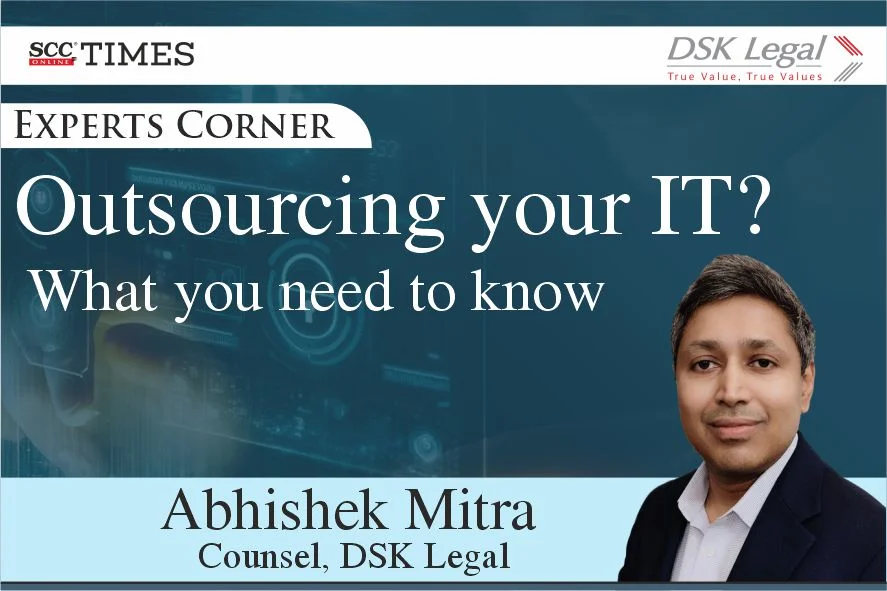Benefits of outsourcing
Outsourcing Information Technology (IT) became popular after Airtel’s groundbreaking contract with IBM in 2004 (it made a Harvard case study). The benefits were remarkable — Airtel focused on its telecom business in its early growth phase, while letting the experts handle the technology. This meant large sums of money that would have been sunk in capital expenses towards expensive hardware, software, and manpower, could be used to fuel growth.
This success story was replicated by other telecom companies and businesses across industries including big names in banking, healthcare, retail, and many other sectors.
Despite the proliferation of advanced software as a service (SaaS) and platform as a service (PaaS) system, full stack IT outsourcing continues to drive significant value due to the expertise of vendors who are able to quickly deploy new and emerging technologies including artificial intelligence (AI). They can also be vital in ensuring recovery in case of material disruptions, technology failures or cyber incidents.
Outsourcing at scale also presents challenges and planning for these is crucial for success.
Challenges with IT outsourcing and key considerations
Planning: Outsourcing contracts are usually for longer durations and locked-in so the vendor can recoup capital spend, which means clients must meticulously plan and document the scope in tandem with 5-to-10-year business plans. Rush the planning stage and get locked into a sub-optimal contract.
Retaining leverage: When vendor selection is not via tendering, ensure key non-technical requirements are agreed upfront as part of the scope. The vendor knows you are already invested in closing the deal, so anything that is not agreed in principle will see sustained pushback if brought in during contract negotiations, even if it does not have cost implications for the vendor.
Engage experienced outside counsel and get your contract draft ready. And ensure ahead that the vendor agrees to work on your draft.
Technology selection and scaling: A large vendor dealing in its own brand of technology will prefer to use its own products. These may be cutting edge at the time the deal was signed, but the vendor and their products will not remain the best over the contract term as newer technologies and players emerge rapidly. Ensure you have a role in product selection and are not limited to a fixed set of brands.
Choice of products must also account for scalability to accommodate business growth. Also check the end-of-life and end-of-support dates for key products.
Interfaces and middleware: Insist on using industry standards for interfaces/application programming interfaces (APIs) and integrations. For software development, an industry standard methodology should be followed.
Middleware is a critical element in large IT systems that bridge and connect disparate systems and determine how efficiently they interoperate. Weigh the benefits of keeping middleware out of the main vendor’s scope — and evaluate bringing in a third party specialising in middleware. Getting this wrong means ending up with complex indecipherable system integrations and code. This can also limit the ability to uncouple from the vendor at term-end as unravelling the maze can become an onerous and drawn-out task.
Locking out competition: Your vendor may also be servicing your competitors. As you devise new service offerings and features, ensure your vendor is restricted from replicating these for the competition — or be pragmatic and impose a time restriction till you monetise your advantage. Absolute prohibition and stringent intellectual property rights (IPR) clauses are not usually the solution — vendors can simply write different code for similar output. Enforcing rights for little things can lead to confrontation early on and it is not helpful to get antagonistic with a vendor who is deeply entrenched within your systems.
KPIs: Build-in key performance indicators (KPIs) into your contracts to measure how the vendor performs and whether your organisations’ objectives are being met over the contract term.
Product development roadmaps: Vendors follow their own roadmaps for enhancing their proprietary products. Get them to accommodate in their roadmap new features and functionality that you need.
Governance: Draw up an efficient governance mechanism to manage the performance of the contract, resolve operational difficulties and differences, and enable collaboration between multiple vendors.
Exclusivity: Avoid exclusivity commitments to vendors — they will press for it. Vendor performance and interest in your success can vane over the life of the contract for various reasons, mostly financial. Retain the option to bring in other vendors for specialised applications.
Retaining and building skills
Retain in-house IT: Outsourcing deals often involve transferring your IT team to the vendor. Retain key people and hire specialised talent to manage technology decisions, assess emerging technologies, oversee vendors, and remain involved in everyday IT operations. You need to plan for exigencies (even large vendors can decline) and retain the ability to bring IT back in, if needed. Having skilled in-house IT is key. Even the best contracts are useless when not backed up by a skilled team to drive and manage them.
Knowledge sharing and transfer: Regular knowledge sharing, and transfer is important to keep the in-house team relevant, prevent the loss of experience and retain the ability to bring IT back in, when needed.
Conclusion
Outsourcing your IT to skilled tech vendors has significant advantages, ensuring your business remains cutting edge in technology deployment. But it is easy to forget the long-term picture, so be aware of the pitfalls and stay involved and in control. There are many other aspects, technical and legal, to consider when opting for IT outsourcing. Bring in experienced outside counsel early on to work with you as you draw out the scope and for drafting and negotiating your contracts. It will be money well spent.
*Counsel, DSK Legal







